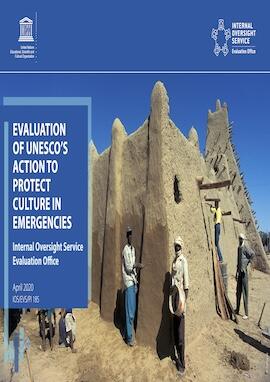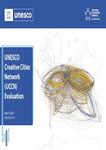Page Header

Downloads:
2
Evaluation of UNESCO's Action to Protect Culture in Emergencies
Overview
Member States find UNESCO’s work in protecting culture in emergencies to be highly relevant and indicate that UNESCO is the lead UN organization in this sphere and the only one with a clear mandate. Moreover, Member States believe that the 2015 Strategy has strengthened UNESCO’s mandate in this area. At the strategic and structural levels, supporting Member States with protecting culture in emergencies is a priority for UNESCO’s Culture Sector. UNESCO has furthermore been relatively effective in achieving its intended targets under the Expected Result dedicated to protecting culture in emergencies. In terms of challenges, the evaluation found that there is no overall results framework for UNESCO’s culture in emergencies work as a whole which can guide staff in designing programmes that lead to long-term change. As a result, there is no single organization-wide definition of an emergency and no collective trigger mechanism to guide UNESCO staff in determining whether to intervene or not. Another consequence of this is poor evidence collection, which means that UNESCO often does not have the information required to effectively communicate meaningful results to Member States and the public. UNESCO’s capacity to respond in a timely manner is also hampered by both limited regular programme funding for emergency work, as well as heavy administrative processesReport Details
| Year Published | |
| Type | |
| Theme/s | |
| Joint | No |
| Partner/s | N/A |
| SDG/s | |
| Consultant name | |
| Agency Focal Point | Ekaterina SEDIAKINA RIVIERE |
| Focal Point Email | e.sediakina@unesco.org |
| Managed by Independent Evaluation Office | Yes |
| Geographic Scope | Global |
YOU 'RE READING
Evaluation of UNESCO's Action to Protect Culture in Emergencies










